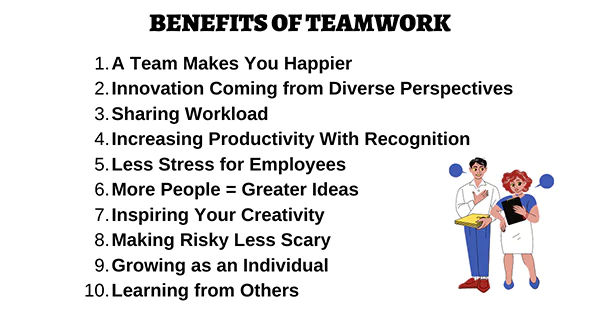Collaboration and Teamwork: Essential Skills for Social Work Professionals

The dynamic and demanding social work profession is all about various skills and qualities. Social work is where every action has the potential to impact lives profoundly. On the other hand, collaboration and teamwork emerge as necessary elements.
The coordination and teamwork between social work professionals ensure smooth transitions for interventions. Of course, to make a difference and achieve something necessitates the support and cooperation of professionals.
No matter if they are working on a macro level of providing direct client care, they often find themselves collaborating with different individuals.
Meanwhile, an environment that encourages everyone to work together can have a big impact on your team’s performance.
And, maintaining a balance between autonomous working, teamwork, and collaboration skills will play a role in boosting individual strengths to keep the workforce engaged and efficient.
This article looks at the significance of collaboration and teamwork and how these skills can enhance outcomes for both clients and professionals.
Understanding Collaboration in Social Work
On each working day, social workers will be found busy in discussions with colleagues. The discussion may be aimed at trying to understand the nature of social care problems, determine the cause of action, and secure a service for someone in need.
Simply put, working together, or you can say collaboration is the most effective and affordable path forward for several reasons. For instance, with collaborative teams, Social workers can offer unique insights.
In essence, collaboration is of utmost importance when talking about social work skills.
Enhancing Client Outcomes
The combination of collaboration and teamwork makes a team of members having distinct skill sets and the ability to productively work together. This combination can profoundly impact client outcomes.
Are you wondering how? There is a logic behind it. So, when different people join each other knowing diverse fields, they not just only collaborate, but they bring diverse perspectives and expertise on board. This is obvious, isn’t it?
With this, they tackle complex cases effectively and comprehensively.
Not only this, They can develop well-informed strategies by pooling resources and knowledge which eventually leads to better client outcomes.
Empowering Professionals
Promoting collaborative teamwork empowers professionals in a way that increases productivity and efficiency. they can focus on what they do best so that the entire team benefits.
Having said that, each individual is unique and has their strengths and specialties.

Statistics:
The 2024 State of Social Work survey reached a diverse group of respondents in terms of experience.
Among them, 25% had less than three years of experience, 16% had between three and five years of experience, 19% had between five and ten years of experience, 17% of social workers had between ten and fifteen years of experience, and 23% of them had more than fifteen years of experience.
Team members develop social abilities and communicate better by forming bonds with their peers. This natural way of learning facilitates an environment that encourages learning from mistakes, friendly competition, debriefing sessions, and open conversations.
Yet another collaboration with disciplines, community-based groups, or government bodies exposes professionals to fresh ideas or innovative approaches and broadens their horizons.
The Benefits of Teamwork

“The use of teams and collaboration expectations have been consistently rising”, says Dr. Scott Tannenbaum, a researcher, and president of the Group for Organizational Effectiveness.
Anyone who thought the rise of distributed work would be the downfall of teamwork has probably revised their tune by now.
In reality, teamwork is more important than ever. Understand with a few benefits penned down below:
Maximising Efficiency
When professionals work together as a team, they hold one another accountable. This results in enhanced efficiency and smarter decisions.
Fast Fact:
Collaborative teamwork is more productive and motivated toward company goals. Hence, highly engaged teams showed a 21% increase in profitability.
Also, teamwork encourages professionals to exchange ideas and brainstorm collectively. Collectively, this ensures that tasks are completed efficiently.
The division of labor allows members to focus on their areas of expertise, ultimately leading to faster and higher-quality results.
Enhanced Creativity and Problem-Solving Skills
A workplace having open-minded coworkers allows each one of them to frequently share their ideas, analyses, suggestions, and concerns. This sets a path for open communication on new ideas and different perspectives, resulting in creative problem-solving.
The diversity of prospects is considered to be the greatest asset of teamwork and collaboration.
Let’s understand with an example:
You have come across a case where families facing housing insecurities. The role of social workers here consists of collaborating with housing specialists, mental health professionals, and financial advisors.
Moreover, the inputs of each professional play a significant role in bridging a gap where others may lack expertise or insights.
Improved Client Outcomes through Comprehensive Support
Working together produces good client outcomes. Client outcomes are not just measured by quick fixes but by the lasting impact of holistic support.
Some strategies can promote collaboration and teamwork in the field of social work. These are:
- Enhance Communication: Communication skills like listening, clear expression of ideas and effective communication of expectations can enhance communication.
- Recognize and Value Expertise: Try to establish trust by respecting contributors and other’s skills.
It’s time to see how better client outcomes are achieved through comprehensive support.
For example:
One of the clients is struggling with mental health issues. Now each team member brings their expertise to the table and addresses different aspects of the situation.
Do You Know?:
About 75% of employers agree that teamwork and collaboration are essential in the workplace.
Next, in turn, the psychologist conducts a mental health evaluation and provides therapy to help the client. The case manager assists in accessing assistance programs for the same.
This way, the team ensures that the client receives integrated support that addresses their concern.
Conclusion
Collaboration and teamwork stand as the backbone of success in the field of social work. These are somewhat necessary to effectively support clients and achieve outcomes.
With these powers, social work professionals can promote positive change in the community and overcome any barriers that may stand in the way.
More doesn’t need to be said since successful teamwork can thrive success in any function of life.










